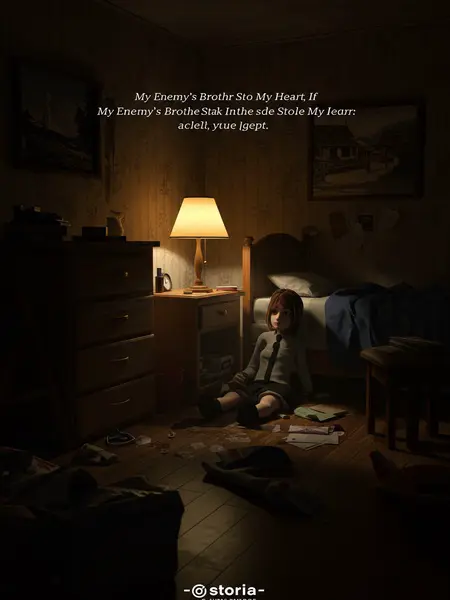Chapter 1: The Deal That Changed Everything
I've been responsible for Nathan Miller for as long as I can remember.
Nathan barely spoke, his words locked away. He kept to himself, always carrying a stormy cloud over his head.
I repeated a grade for him, learned sign language for him, and stayed by his side for six years. I remember the chill of his cold shoulder at the lunch table, the long silences between us in the carpool line—the kind that made the air heavy, even when the radio played.
But Nathan never wanted to acknowledge me.
In our senior year of high school, a transfer student joined our class.
In front of her, Nathan began speaking in complete sentences.
When she asked about our relationship, Nathan frowned, eyes rolling as he scoffed:
"She’s just the girl my mom hired. Clings like Saran wrap. Says she wants to follow me to New York after graduation. It’s... exhausting."
But he didn’t know that Mrs. Miller and I had made a deal long ago.
I would take care of him until high school graduation, and Mrs. Miller would pay for my college education.
I also didn’t apply to universities in New York. Before the application deadline, I quietly changed my choice to Harvard.
Before meeting Nathan, I’d always lived in a group home.
It was a private group home, not exactly on the up-and-up. More like one of those places that slides through the cracks in the system.
Plenty of people came to donate, but most of the money disappeared straight into the director’s pocket. He drove a Cadillac while we wore hand-me-downs from Goodwill, clothes that had survived three other kids before us.
Meals at the group home were always meager—so small we never had enough. Breakfast was watery oatmeal, lunch was a single slice of bologna between stale bread, and if we were lucky, dinner was a casserole made from whatever was about to expire.
I don’t remember who started it, but fights over food broke out. Hunger ruled everything, and the smell of the director’s lobster bisque made my stomach gnaw at itself, my mouth watering and my hands shaking as I watched him eat.
Cursing, fighting, and brawling happened every day. The older kids ran their own gangs; the younger ones learned to steal or go hungry.
The day Mrs. Miller came, we’d just started eating.
A boy snatched half a hard-boiled egg from my bowl, so I grabbed him by the neck and pinned him to the floor. My knees dug into his ribs as I wrestled for what was mine.
He shoved the egg into his mouth.
So I dug it out with my fingers. I wasn’t about to lose—not when that egg was the only protein I’d get all week.
The director sat nearby, sipping lobster bisque, the rich smell of cream and shellfish filling the room. He watched us with sick amusement, sometimes even betting with the janitor on who’d win. The more pitiful we looked, the more cash he squeezed from the church ladies who loved a tragic story.
When he was in a good mood, he’d toss us leftover scraps—sandwich crusts or cold fries, if we were lucky.
Mrs. Miller walked in at that exact moment, scaring the director so badly he nearly dropped his soup. He scrambled up, smoothing his greasy hair.
When I heard she’d come to adopt a child, disappointment twisted in my chest. I knew adults wanted quiet, sweet girls—not someone covered in egg yolk and spit, not someone who fought like an alley cat.
But she looked around and crouched in front of me. Her heels clicked on the linoleum, and her perfume smelled expensive—something sharp and floral, like the fancy counters at Macy’s.
She said I had potential and asked if I wanted to come home with her.
I’d dreamed of escaping that place, so I nodded so fast I probably looked like a bobblehead dog.
That day, I moved into the Miller family home.
For the first time, I had my own bed and didn’t have to worry about food or clothes. The sheets smelled like fabric softener, not mildew, and happiness came so suddenly it almost hurt.
While I was still overwhelmed with gratitude, Mrs. Miller brought me to meet Nathan.
It was getting dark, but his room was shadowy—no lights on, only the last rays of sun painting orange stripes across the hardwood floor.
He sat alone in the corner, earbuds in, staring out at the fading sunset. Even when we entered, he didn’t look up, fingers tapping on his knee in time with music I couldn’t hear.
"This is my son, Nathan," Mrs. Miller said, then got to her real point: "I have my own child. The reason I’m adopting you is because he has aphasia and can’t communicate normally."
"Because of his aphasia, he gets bullied at school. I can’t protect him all the time, so I need you to help take care of him at school. Teenagers can be cruel."
She looked at me seriously. "Emma, can you do this?"

